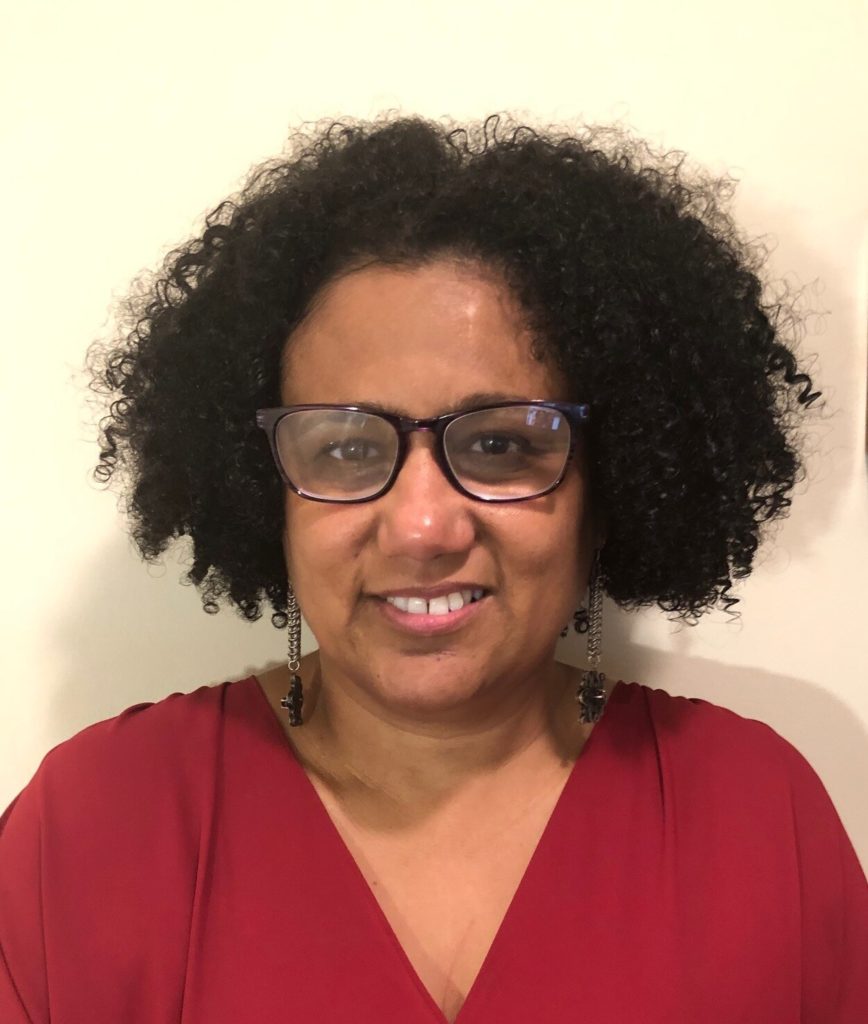“A Short History of Structural Racism” Series
Register Required
Join ICPJ for a series on Structural Racism by Ayo Magwood and Uprooting Inequity. In the final session, ICPJ Co-Directors Desiraé Simmons and Eleanore Ablan-Owen will host a reflection and action-planning conversation. Join us for all of the virtual sessions, or join the ones that you are able. Registration will allow you access to the materials that are shared.

This series will be led by Ayo Magwood, an educational consultant specializing in ideologically-neutral, evidence-based, and solution-oriented education on historical and structural racism, Asian and Latinx racialization, and interracial conflict and cooperation. She will host a 3-part series with ICPJ that will focus on The Origins of Race and Racism (Colonial Era), Structural Racism: Historical Roots and Contemporary Expressions, and Remediating Structural Racism. The final session of this series will have ICPJ Co-Directors Desiraé Simmons and Eleanore Ablan-Owen host a reflection and action-planning. Please register ahead of time because it will allow you access to the materials that are shared.

This series is free. For those able to contribute financially, please do so through the registration site.
The Origins of Race and Racism (Colonial Era)
Session 1: Thursday, September 14th, 5:30-7:30pm
Why did we invent races and institutionalize racism? Why do societies invent races and castes? We will go back in history and learn about race relations and slavery during the early colonial American period, before we invented race and racism. Through primary historical sources, we will trace the social construction of the Black and White “races” and the transition from a class- to a race-based society. Anti-black racism was institutionalized through laws, religion and pseudoscience, in order to rationalize the enslavement of humans (economic interests) in a society that professed belief in Enlightenment values of freedom, equality, and liberty. Then, we will “zoom out” and reflect on why societies in general invent races. Races are castes: socially-constructed categories of people with hierarchically ranked status and differential access to power, resources, and opportunity. Dominant groups create narratives about inferior, subhuman castes in order to legitimize slavery, colonization, or genocide.
Structural Racism: Historical Roots and Contemporary Expressions
Session 2: Thursday, September 28th, 5:30-7:30pm
What is structural racism? What are the historical roots of contemporary structural racism? First, I provide data on contemporary racial disparities and segregation. Then, I introduce the concept of structural racism using several metaphors, and explain how it differs from individual bias. Next, I demonstrate how structural racism is rooted in the persistent legacies of the accumulated gains of historical discrimination: residential segregation and the racial wealth gap. The contemporary racial wealth gap is rooted in decades of white-only public investment including FHA/VA-backed mortgages and the G.I. Bill. Contemporary residential segregation is rooted in racial zoning, restrictive covenants, redlining, and (nominally-economic) exclusionary zoning. Thus, even eliminating all interpersonal racism would not have much of an impact on structural racism. Finally, I explain how contemporary structural racism is rooted in the enduring legacies of this historical discrimination.
Remediating Structural Racism
Session 3: Thursday, October 12th, 5:30-7:30pm
How do we remediate structural racism? How do we foster the cross-racial and cross-ideological solidarity needed to do so? First, I review my description of structural racism from my previous seminars. Next, I introduce some guiding principles to guide as we strive to remediate structural racism. Then, I describe some social psychology principles for fostering interracial cooperation. Our evolutionary tendency to compete with outgroup members is too strong to suppress through bias training, but we can shift this tendency by 1. getting the “us” and “them” to see themselves as the same ingroup, 2. accommodating for subgroup power differences by 3. learning about each other’s histories. Finally, I describe some specific strategies for a) designing government policies for remediating structural racism, b) implementing institutional practices to reduce the impact of biased behavior (vs. thoughts), and c) reducing individual opportunity hoarding.
Organizing to Disrupt and Uproot Structural Racism
Session 4: Thursday, October 26th, 5:30-7:30pm
In the final session, ICPJ Co-Directors Desiraé Simmons and Eleanore Ablan-Owen will host a reflection and action-planning conversation.